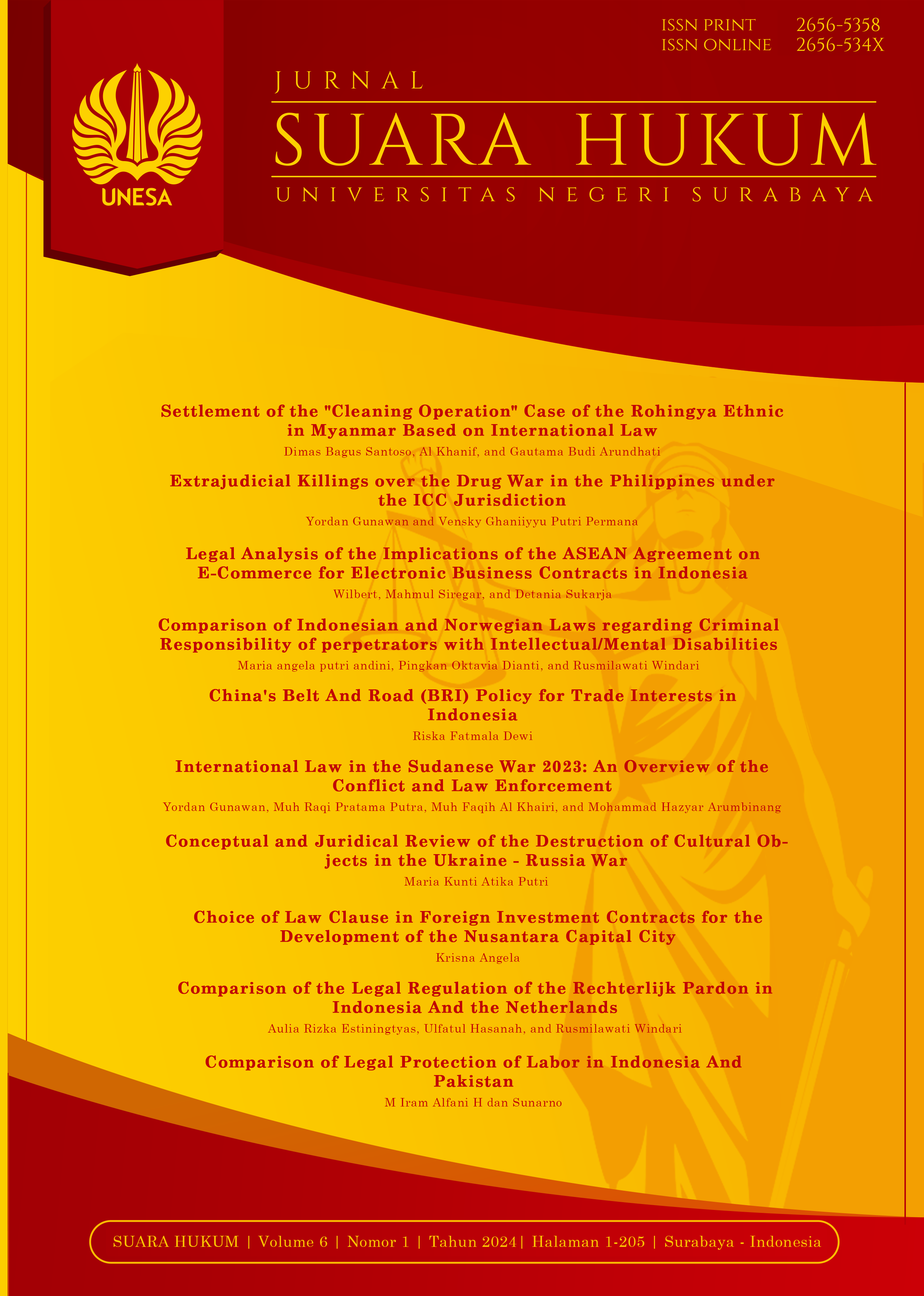Comparison of the Legal Regulation of the Rechterlijk Pardon in Indonesia and the Netherlands
DOI:
https://doi.org/10.26740/jsh.v6n1.p162-186Abstract
The concept of rechterlijk pardon represents a new legal formulation introduced in Indonesia through Law Number 1 of 2023 concerning the Criminal Code, aimed at aligning criminal law with contemporary societal conditions. Beyond traditional deterrence, this concept empowers judges to consider mitigating circumstances and individual offender situations. Several European countries, including the Netherlands, have long regulated rechterlijk pardon, prompting a comparative analysis of its application between the Netherlands and Indonesia. This normative legal research compares the provisions of rechterlijk pardon in the Indonesian Criminal Code (KUHP) with those in Dutch law. The findings reveal both similarities and differences: both systems require judges to justify their decision for granting pardon and offer alternative pardon requirements, yet Indonesia includes specific considerations of justice not detailed in Dutch law. The study underscores the importance of clarifying the criteria for rechterlijk pardon implementation in Indonesia to preempt potential conflicts. Ultimately, the research advocates for a clear and harmonized framework for judicial pardon in Indonesia, ensuring consistency and fairness in its application within the criminal justice system
References
Arief, B. N. (2008). Bunga Rampai Kebijakan Hukum Pidana: Perkembangan Penyusunan Konsep KUHP Baru. Kencana
Barlian, A. E. A., & Arief, B. N. (2017). Formulasi Ide Permaafan Hakim (Rechterlijk Pardon) dalam Pembaharuan Sistem Pemidanaan di Indonesia. Law Reform, 13(1), 28-44
Criminal Code of Netherlands
Farikhah, M. (2018). Rekonseptualisasi Judicial Pardon Dalam Sistem Hukum Indonesia (Studi Perbandingan Sistem Hukum Indonesia Dengan Sisitem Hukum Barat). Jurnal Hukum & Pembangunan, 48(3), 556-588
Gozali, D. S. 2018. Pengantar Perbandingan Sistem Hukum. Bandung: Nusa Media
Hakim, L. (2019). Penerapan konsep pemaafan hakim (Rechterlijk pardon) dalam sistem perdailan pidana di Indonesia: optimalisasi teori dualistis di dalam sistem pemidanaan. Yogyakarta: Graha Ilmu
Irmawanti, N. D., & Arief, B. N. (2021). Urgensi tujuan dan pedoman pemidanaan dalam rangka pembaharuan sistem pemidanaan hukum pidana. Jurnal Pembangunan Hukum Indonesia, 3(2), 217-227.Saputro, Adery Ardhan. (2016). Konsepsi Rechterlijk Pardon atau Pemaafan Hakim Dalam Rancangan KUHP. Mimbar Hukum. 28(1). 61-76
Kusnandar, V. B. (2022). Penghuni Lapas dan Rutan Kelebihan Kapasitas 109% Pada September 2022. databoks website : https://databoks.katadata.co.id
Marzuki, P. M. 2018. Pengantar Ilmu Hukum. Jakarta: Prenadamediagroup
Masiming, Z. M. (2020). Perspekstif Ide Rechterlijk Pardon Dalam Penyelesaian Perkara Anak Yang Berkonflik dengan Hukum. Makassar; UNHAS
Saputra, S. N. E., & Isnawati, M. (2022). Overcrowding Lembaga Pemasyarakatan (Lapas) Dalam System Pemidanaan Di Indonesia. Pagaruyuang Law Journal, 6(1), 52-70
Syahputra, A. (2016). Tinjauan Atas Non-Imposing of a Penalty/ Rechterlijk Pardon/ dispensa de pena dalam R KUHP serta Harmonisasinya dengan R KUHAP. Institute For Criminal Justice Reform
Ulfah, M. 2022. Perbandingan Sistem Hukum. Universitas Islam Kalimantan Muhammad Arsyad Al-Banjari Banjarmasin
Undang-undang Nomor 1 Tahun 2023 Tentang Kitab Undang-Undang Hukum Pidana
Yosuki, A., & Tawang, D. A. D. (2018). Kebijakan Formulasi Terkait Konsepsi Rechterlijke Pardon (Permaafan Hakim) Dalam Pembaharuan Hukum Pidana Di Indonesia. Jurnal Hukum Adigama, 1(1), 49-73

Downloads
Published
Issue
Section
License
Copyright (c) 2024 Aulia Rizka Estiningtyas, Ulfatul Hasanah, Rusmilawati Windari

This work is licensed under a Creative Commons Attribution-NonCommercial 4.0 International License.
 Abstract views: 808
,
Abstract views: 808
, PDF Downloads: 387
PDF Downloads: 387



